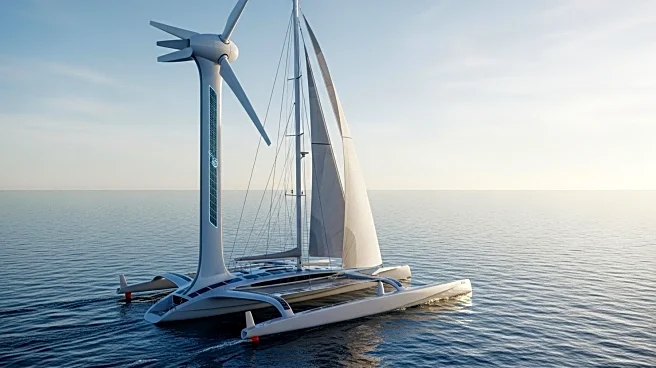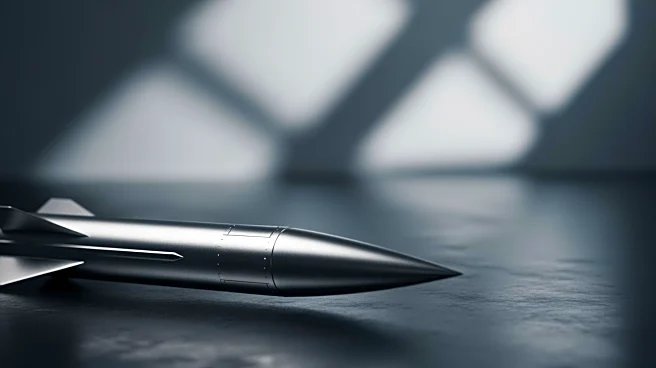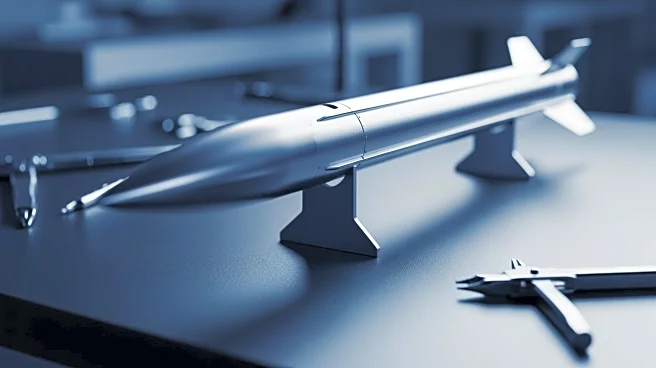What is the story about?
What's Happening?
Vela Transport is advancing the construction of its wind-powered cargo trimaran, L'avion des Mers, which is set to revolutionize sustainable shipping. The vessel, currently under construction in the Philippines, is designed to transport pharmaceutical products and has secured Takeda Pharmaceutical as its first major client. The trimaran will feature a capacity for 500 US pallets and will be equipped with temperature-controlled, renewable energy-powered refrigeration systems. The ship's construction includes two carbon-fiber masts and a sail area of 6,700 square feet, enabling it to achieve speeds of 14 knots using wind power alone. The vessel will also incorporate solar panels and hydro-generators, emphasizing its commitment to sustainability.
Why It's Important?
This development marks a significant step towards sustainable maritime transport, particularly in the biopharmaceutical sector. By utilizing wind and solar power, Vela Transport aims to reduce carbon emissions and align with global sustainability goals. Takeda Pharmaceutical's involvement underscores the industry's shift towards environmentally friendly logistics solutions. The trimaran's design, which eliminates the need for water ballast and minimizes engine use, sets a new standard for eco-friendly shipping. This initiative could influence other industries to adopt similar practices, potentially leading to a broader transformation in global shipping and logistics.
What's Next?
Vela Transport plans to expand its fleet to five vessels by 2028, offering weekly transatlantic services between France and the United States. This expansion aims to transport up to 48,000 tons of goods annually, further promoting sustainable shipping practices. The success of this project could encourage other companies to invest in similar technologies, potentially leading to increased demand for wind-powered vessels. Stakeholders in the shipping industry, including port authorities and logistics companies, may need to adapt to accommodate these new types of vessels and their unique operational requirements.
Beyond the Headlines
The introduction of wind-powered cargo vessels could have long-term implications for maritime regulations and environmental policies. As more companies adopt sustainable shipping methods, there may be increased pressure on regulatory bodies to incentivize or mandate eco-friendly practices. This shift could also impact the design and construction of future vessels, with a greater emphasis on renewable energy sources and sustainable materials. Additionally, the success of Vela Transport's initiative could inspire innovation in other sectors, leading to a broader cultural shift towards sustainability.














